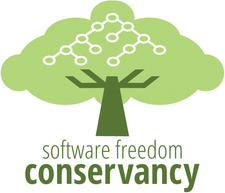Updates on technologies, trends, and tools
NEWS

© CC BY-SA 3.0
In the news: Software Freedom Conservancy announces end to VMware lawsuit; Chef goes all open source; SUSE spins off from parent company; Gnome 3.32 released; NSA's reverse engineering tool released; and a new Mirai Botnet variant discovered.
Software Freedom Conservancy Announces End to VMware Lawsuit
Linux developer Christoph Hellwig has announced that he is discontinuing his lawsuit against VMware for non-compliance with the terms of the GPL. Hellwig and the Software Freedom Conservancy accused VMware of including GPLed code associated with vmklinux into VMware's proprietary vSphere product. A German appeals court dismissed the case on February 28. Hellwig and the Software Freedom Conservancy have decided they will not appeal the case further in German courts.
The judge appears to have decided the case on procedural grounds without taking on the larger questions related to the GPL and the power of the copyleft protection. The questions hinged around whether the plaintiffs had successfully proven that the code was present in VMware's code base and that the use of the code was non-compliant. VMware maintains that the vmklinux code is a separate component that does not force release of vSphere under the copyleft requirement.
Software Freedom Conservancy executive director Karen Sandler expressed disappointment, "VMware knew what they were doing was wrong but continued to generate revenue by infringing copyrights in Linux, while slowly working toward non-infringement."
[...]
Buy this article as PDF
(incl. VAT)
Buy Linux Magazine
Subscribe to our Linux Newsletters
Find Linux and Open Source Jobs
Subscribe to our ADMIN Newsletters
Support Our Work
Linux Magazine content is made possible with support from readers like you. Please consider contributing when you’ve found an article to be beneficial.

News
-
New Linux Botnet Discovered
The SSHStalker botnet uses IRC C2 to control systems via legacy Linux kernel exploits.
-
The Next Linux Kernel Turns 7.0
Linus Torvalds has announced that after Linux kernel 6.19, we'll finally reach the 7.0 iteration stage.
-
Linux From Scratch Drops SysVinit Support
LFS will no longer support SysVinit.
-
LibreOffice 26.2 Now Available
With new features, improvements, and bug fixes, LibreOffice 26.2 delivers a modern, polished office suite without compromise.
-
Linux Kernel Project Releases Project Continuity Document
What happens to Linux when there's no Linus? It's a question many of us have asked over the years, and it seems it's also on the minds of the Linux kernel project.
-
Mecha Systems Introduces Linux Handheld
Mecha Systems has revealed its Mecha Comet, a new handheld computer powered by – you guessed it – Linux.
-
MX Linux 25.1 Features Dual Init System ISO
The latest release of MX Linux caters to lovers of two different init systems and even offers instructions on how to transition.
-
Photoshop on Linux?
A developer has patched Wine so that it'll run specific versions of Photoshop that depend on Adobe Creative Cloud.
-
Linux Mint 22.3 Now Available with New Tools
Linux Mint 22.3 has been released with a pair of new tools for system admins and some pretty cool new features.
-
New Linux Malware Targets Cloud-Based Linux Installations
VoidLink, a new Linux malware, should be of real concern because of its stealth and customization.
